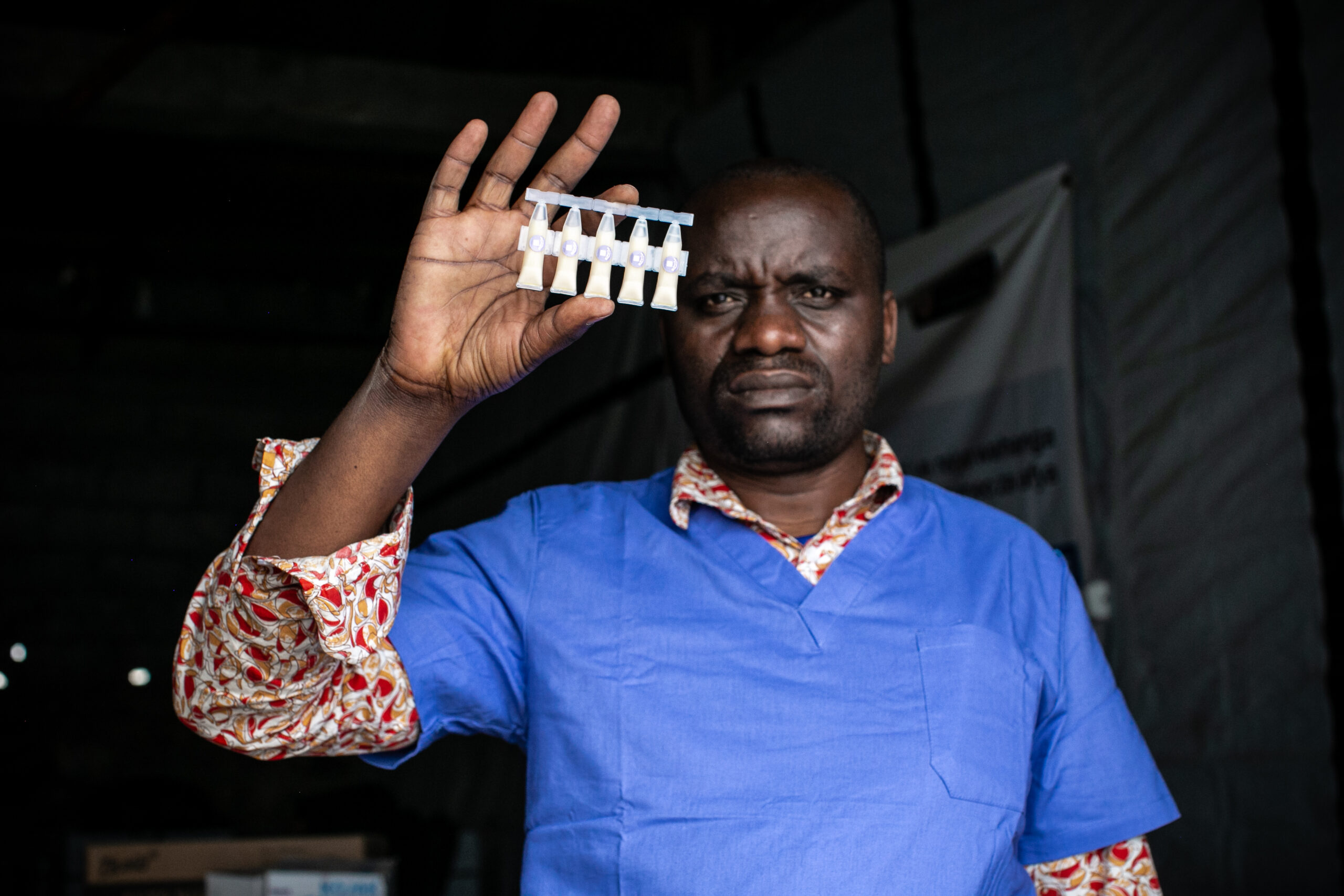
Pandemic disruptions should prompt us to intensify, not compromise, immunization coverage

Health supervisor Joseph Muhisi holding oral cholera vaccine outside a displacement camp in Nyiragongo outside the city of Goma, Democratic Republic of Congo. Photo: PATH/Ley Uwera.
The latest published UNICEF’s State of the World’s Children (SOWC): For Every Child, Vaccination report shows that since before the COVID pandemic, one in five children in the poorest households (67 million children total) missed crucial life-saving vaccines. As the acute phase of COVID recedes, other crises continue to unfold in its wake that worsen disruptions to healthcare. We face a cholera outbreak in eleven countries in the African region, induced by extreme weather events, conflicts, and concurrent disease outbreaks. We are motivated to intensify vaccination efforts not only by these continuing threats and by success stories over the past decades—and indeed, even during COVID-19.
The COVID pandemic has disrupted many aspects of our lives, including a fall in immunizations for children. Alongside the pandemic, extreme weather events and conflicts worsened access to clean water and sanitation and increased the risk of outbreaks of vaccine-preventable diseases like cholera. The World Health Organization reported more than 160,000 suspected cases of cholera and more than 3000 deaths in the WHO AFRO Region since January 2022.
To control the current waves of cholera outbreaks and to provide cholera vaccine to more people from limited stocks, the World Health Organization (WHO), UNICEF, the International Federation of Red Cross and Red Crescent Societies (IFRC), and Médecins Sans Frontières (MSF) jointly decided to switch the cholera vaccination campaign strategy from two-dose to one-dose as a temporary solution. Looking forward, scaling up vaccine production as part of a holistic strategy to prevent and control cholera outbreaks before they start, alongside ongoing efforts to ensure safe water and sanitation, will alleviate the burden of infectious disease outbreaks in times of crisis.
We can take inspiration from the introduction of vaccines against rotavirus, the most lethal form of childhood diarrhea. Despite disruptions in earlier phases of the pandemic, rotavirus vaccine coverage increased from 27% to 49% between 2017 and 2021 in places where there was strong political will to do so.
For example, Uganda performed well in delivering vaccines and primary healthcare interventions during the height of the pandemic, organizing routine and catch-up campaigns, distributed deworming capsules and vitamin A, disseminated health and nutrition education, family planning and antenatal care, and knowledge on WASH by offering these services in a package while observing special days (commonly known as Integrated Child Health Days).
Bangladesh, too, rallied quickly after initial pandemic disruptions. By October 2020, vaccine coverage surpassed pre-COVID vaccine levels, a testament to political commitment and a dedicate health workforce.
Preparation well ahead of outbreaks (such as for cholera vaccines) and relentless commitment to routine immunization coverage during crisis (such as with rotavirus vaccination) is how we ensure continuity for every child, no matter when or where they’re born.


